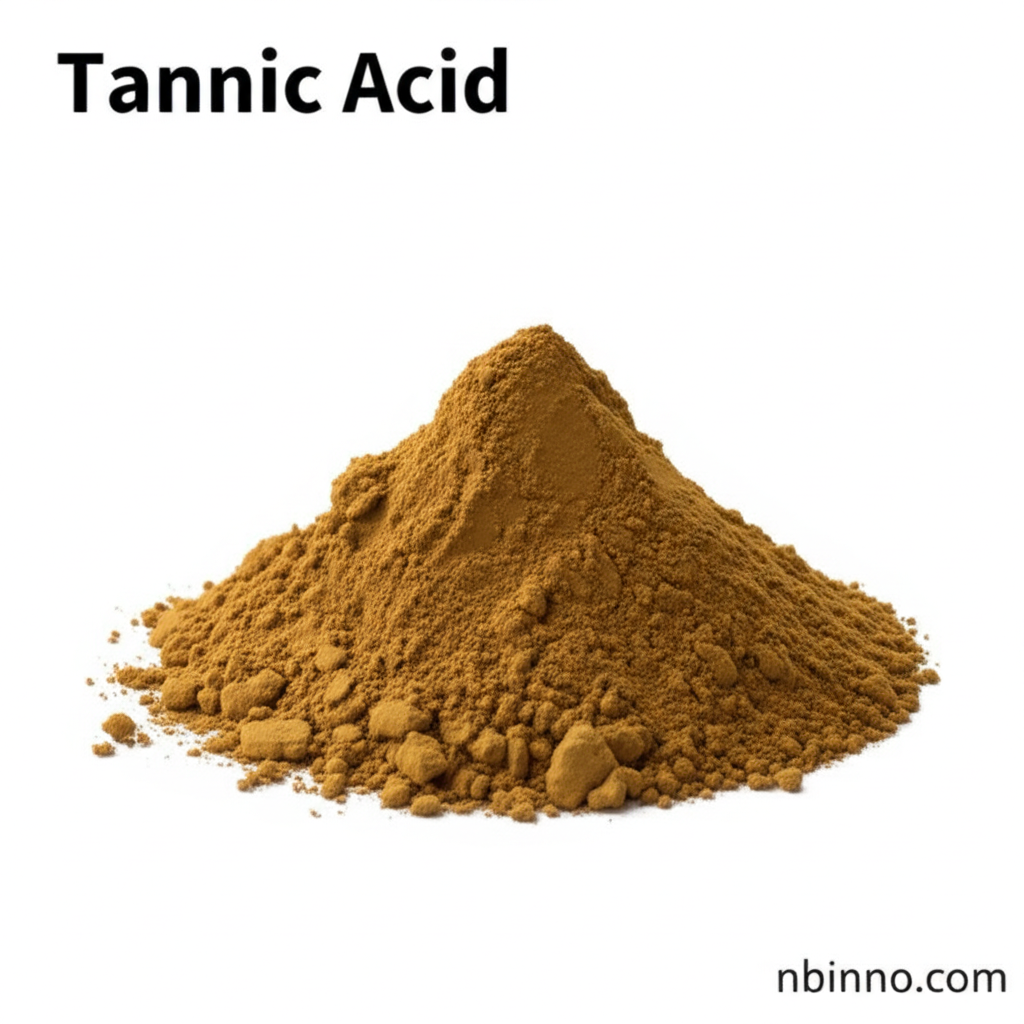The Comprehensive Guide to Tannic Acid: Properties, Uses & Industry Insights
Discover the versatile world of Tannic Acid, a powerful plant-derived polyphenol. From revolutionizing textile dyeing to safeguarding metals and enhancing food products, delve into its unique properties and widespread industrial, pharmaceutical, and consumer applications.
Get a Quote & SampleTannic Acid: The Versatile Polyphenol for Industrial Excellence

Tannic Acid
Tannic acid, a natural polyphenol, is a highly versatile chemical compound known for its astringent and protein-binding properties. Extracted primarily from gallnuts and other plant sources, this yellow to light brown powder (CAS 1401-55-4) is indispensable across a multitude of sectors, from enhancing product durability to ensuring safety and quality.
- Enhances Textile Durability: As a leading Dye Fixing agent and chemical mordant, Tannic Acid significantly improves color fastness and wash resistance in fabrics like cotton and polyamide, preventing dye bleeding and ensuring vibrant, long-lasting hues.
- Superior Corrosion Protection: Utilize Tannic Acid as an effective Corrosion Inhibitor for ferrous metals, forming a stable protective layer that prevents rust and extends the lifespan of metal objects, crucial for industrial metal corrosion prevention.
- Natural Food & Beverage Clarifier: Approved as a food additive, Tannic Acid is widely employed in the food industry for natural clarification of beverages such as wine and beer, improving both taste and visual appeal.
- Broad Pharmaceutical Applications: Explore the diverse pharmaceutical uses of Tannic Acid, from its historical role as an antidote to modern topical treatments for skin irritations like cold sores and diaper rash, showcasing its unique astringent and antimicrobial properties.
Product Advantages
Enhanced Color Stability
Tannic acid significantly boosts color fastness in textiles, acting as a crucial Dye Fixing agent to prevent fading and bleeding, ensuring that fabrics maintain their vibrant appearance even after repeated washes. This is vital for manufacturers seeking superior dye-fixed textiles.
Effective Metal Preservation
As a powerful corrosion inhibitor, Tannic Acid forms a protective barrier on ferrous metals, actively preventing rust and extending the service life of metal components in various industrial applications. This offers superior corrosion protection for your assets.
Multi-Industry Versatility
From its role as a natural food additive for clarification to its widespread pharmaceutical uses, Tannic Acid's diverse properties make it an invaluable chemical across numerous sectors, including wood staining and ink manufacturing, offering broad application possibilities.
Key Applications
Textile Industry
Tannic acid serves as a critical mordant and dye fixing agent, improving the adhesion of dyes to cellulose fibers and enhancing wash fastness for vibrant and durable textiles. This includes its use as a tannic acid anti-staining agent textiles.
Metal Treatment
Widely used as a corrosion inhibitor, Tannic Acid helps passivate ferrous metals, forming a stable black compound that prevents further rust and is essential for industrial metal corrosion prevention and restoration projects.
Food & Beverage Sector
In the food industry, Tannic Acid functions as a natural clarifying agent, improving the clarity and taste of beverages like wine and beer, and is recognized as a safe food additive in many regions. It is a key ingredient for natural food & beverage clarification.
Pharmaceutical & Health
Beyond its industrial roles, Tannic Acid has significant pharmaceutical applications, including topical treatments for various skin conditions and historical uses as an antidote, leveraging its astringent and antimicrobial properties. Many search for tannic acid for burn treatment.
